Van Life Electrical Systems 101
By the end of this 101 Camper Van Electrical System Guide, you will know:
- The right battery type for your camper van
- An estimate of how much power you will need for your van life
- How to charge your camper van electrical system batteries
- The difference between DC and AC appliances in a conversion van
As this is just an intro, we also have electrical system deep dive guides available, here we will give you an easy to digest overview for the planning phase of your camper van electrical system.
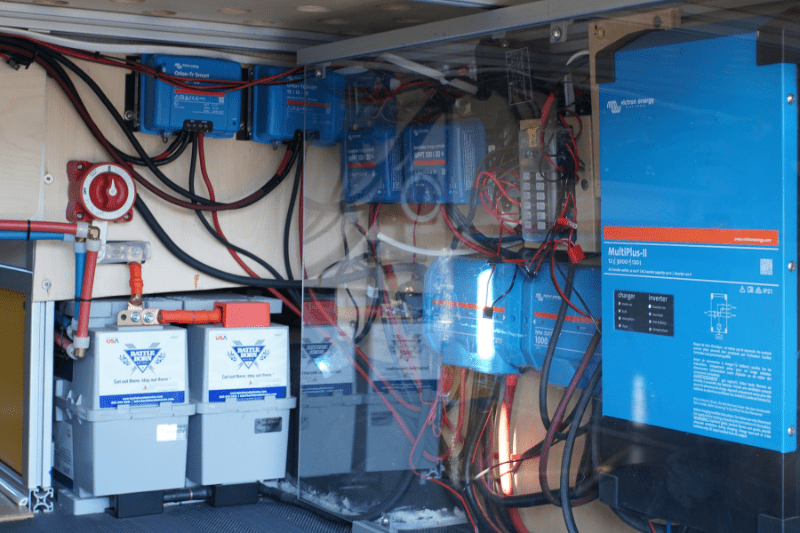
** Disclaimer: This blog post contains various affiliate links that provide a small kickback to us, at no additional cost to you. We truly appreciate your support if you choose to purchase through these! **
Battery Chemistry, Voltage, and Amperage
Selecting the right batteries for your off grid camper van electrical system means making three choices:
- Battery chemistry type
- Battery voltage
- Battery capacity
Common Battery Chemistry Options for Camper Vans
The most common battery chemistry types for camper vans are Lead Acid and Lithium Ion.
Although Lead Acid batteries are cheaper up front for the same usable capacity, they have shorter lifespans and much heavier weights. We truly believe there is no reason not to go with lithium batteries in your camper van. Your camper van electrical system will be cheaper in the long run even though the upfront cost will be greater.
Lead Acid Batteries
- Twice as heavy compared to lithium ion chemistry
- 50% discharge capacity floor
- Less expensive up front cost
- 2-4 year lifespan
Lithium Iron Phosphate (LiFePO4) Batteries
- Lightweight
- 100% discharge floor capacity
- More expensive up front
- 10+ year lifespan
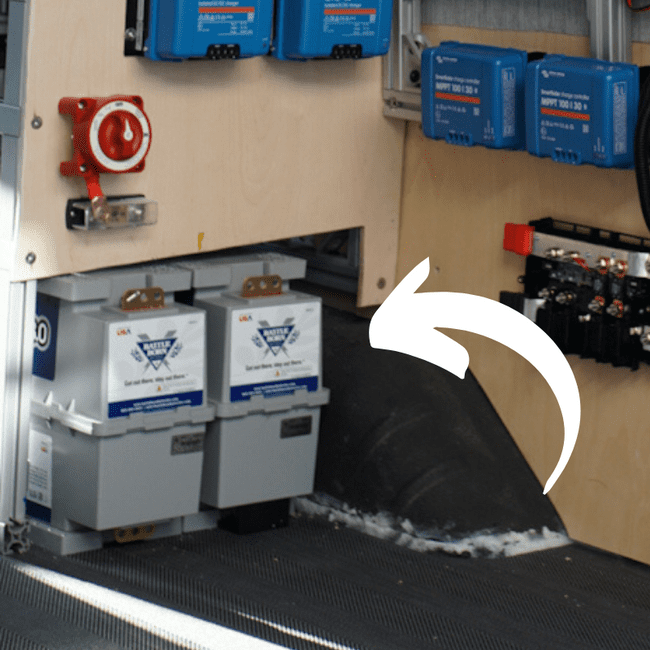
12V vs 24V Batteries - Which One Do You Need in your Camper Van?
The two most common battery voltages in campervan and RV off grid electrical systems are 12 V and 24 V. Voltage is defined as the potential difference, or in practical terms the “speed” that electrons will travel through an electrical circuit. Generally, the larger the battery capacity system, the higher the battery voltage is appropriate. However, we have an entire guide where we dig into finer comparisons between 12V and 24V if you would like to learn more.
12 Volt Batteries
- Great for systems < 400 ah capacity
- Lots of manufactures to choose from
- No modifications needed for DC appliances
- Tons of great internet resources for install!
24 Volt Batteries
- Great for large systems > 400ah capacity
- More compact and energy dense
- Slightly more expensive and complicated to wire
- Converters may be needed for appliances
If this interests you, we have and in depth guide to comparing:
12V vs. 24V Systems in Camper Vans
How Many Amps of Battery Do You Need For Your Camper Van Electrical System?
For an exact answer of how many amps you need in your van’s electrical system refer to our complete electrical sizing guide and perform a full power audit. For a baseline, we will provide general classes of van life use cases with guidelines for each. Note that all amp guidelines are referring to 12 V systems. If you are running a 24 V system, divide each amperage by two.
The Weekend Warrior / Part Time - 200 ah
This van lifer runs a modest suite of DC appliances such as a DC fridge, puck lights, strip lights, maxxair fans, and USB chargers. They have a 1,200 W inverter but don’t use it for energy intensive tasks such as cooking and heating water. Air conditioning is not a practical option with only 200 ah of 12 V lithium ion batteries. This is most optimal for part time van lifers.
Recommended Battery Options:
2x 100ah LiFePO4 Deep Cycle Batteries (12V) [Battleborn or Renogy]
1x 200ah LiFePO4 Deep Cycle Battery (12V) [Victron or Renogy]
1x 270ah GC3 LiFePO4 Deep Cycle Battery (12V)
1x 100ah Victron LiFePO4 Battery (24V!)
The Full Time Van Lifer - 400 ah
We recommend full time vanlifers have at least 400 ah of lithium battery capacity onboard their campervan conversion. Most van lifers will use less than half of this on a daily basis, but there will inevitably be days where you don’t generate much power at all. In those scenarios it’s great to not run out of power and have your batteries die on you.
Recommended Battery Options:
4x 100ah LiFePO4 Deep Cycle Batteries (12V) [Battleborn or Renogy]
2x 270ah GC3 LiFePO4 Deep Cycle Battery (12V)
1x 330ah Victron LiFePO4 (12v)
1x 200ah Victron LiFePO4 (24V!)
No Expense Spared Luxury Van Life - 600 ah+
If you want all of the amenities of regular grid-tied living then you will need at least 600 amp hours of batteries. This will enable you to do things like run an air conditioner pretty easily, cook with an induction cooktop, heat hot water and run a heater without much of a worry. Now, with a battery bank this size and heavy daily use, just make sure you are set up to charge it back up fast with alternator charging and a lot of solar! Some full time vanlifers will have this much battery capacity as well, but mostly those who winter in the northern latitudes and need to make it through winter with very little solar.
For this amount of capacity, you will want larger, space efficient batteries:
Recommended Battery Options
270ah GC3 LiFePO4 Deep Cycle Battery (12V)
330ah Victron LiFePO4 (12v)
200ah Victron LiFePO4 (24V!)
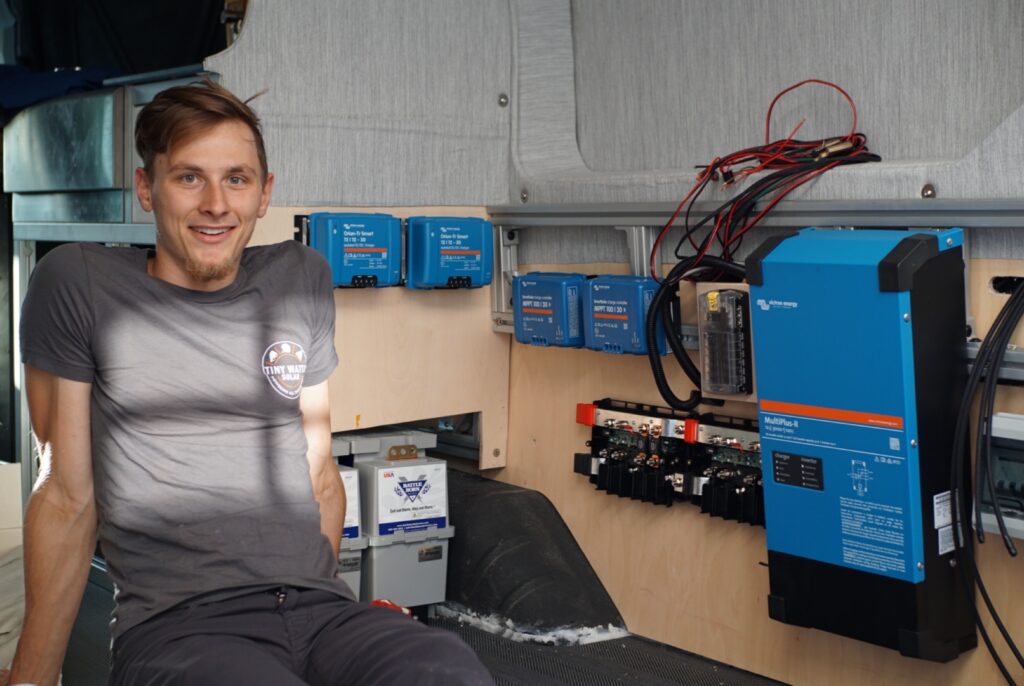
Three Ways to Charge your Camper Van Batteries
Running out of power on the road is worst case scenario as a van lifer. We recommend diversifying the number of ways you have to charge your batteries in order to minimize this risk. And, if you are living in your van full time, we recommend having all three of these options for charging:
Solar Power - The Holy Grail of Van Life Off Grid Living!
A full power audit will guide you to how much solar power you will need to provide ample electricity for your camper van batteries. But! We can tell you that maximizing solar panel SIZE saves a ton of work during your install…
For solar systems greater than 300 W, drop those 100 W panels and instead opt for 175 W, 200 W, or even larger solar panels. On our camper van, Rover, we have 2x 370 W residential solar panels. Using larger solar panels simplifies the wiring and mounting of your panels and likely allows you to fit even more solar on your van roof! Trust us – you will thank us later! But beware – sourcing a small quantity of large panels may be difficult!
The tradeoff with maximizing solar is you lose deck space! So plan your roof layout wisely.
If this interests you, we have and in depth guide to:
Solar Power in Camper Vans!
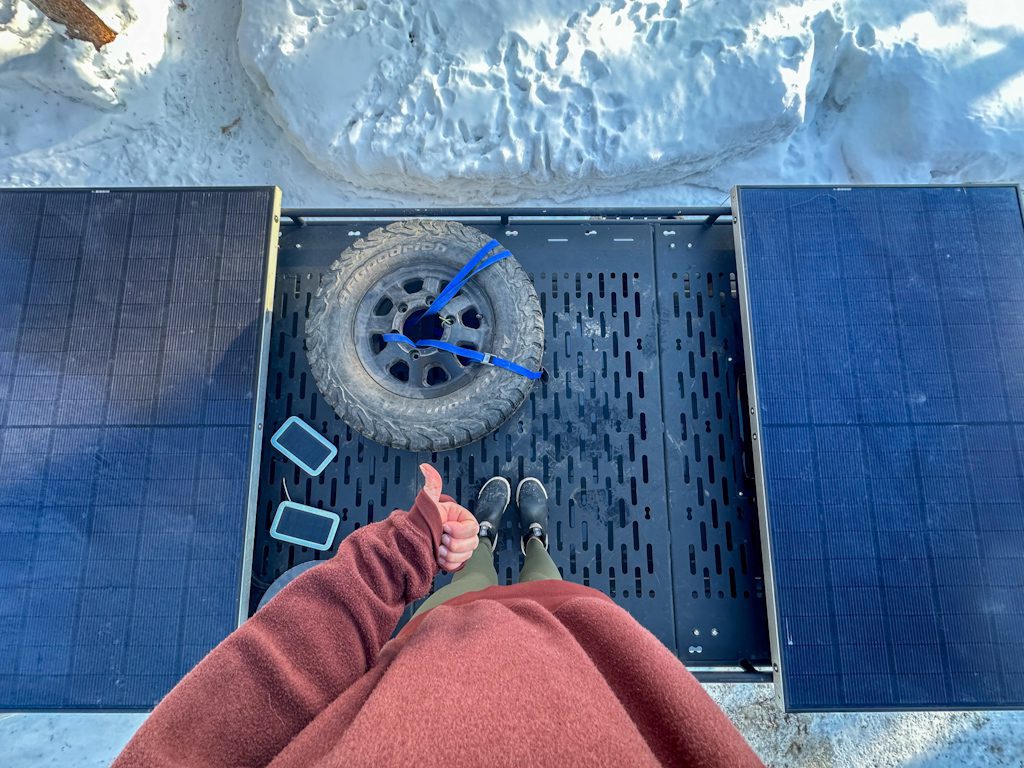
DC-DC Charging via Your Van Alternator
You can charge your camper van batteries while driving by using a DC-DC charger. We see this as FREE power as you can style your travel to always keep your batteries charged and topped off on when solar just isn’t keeping you batteries full. We always recommend maximizing your power generation capability to get you through the short days of winter, so use the information below to decide if you need one or two Victron Orion 30A DC-DC Chargers.
One DC-DC Charger
- If you find yourself in the weekend warrior level of van electrical system
- You have 200 ah of lithium batteries or less to charge
- Your chassis alternator is 160 amps or smaller
Two DC-DC Chargers
- If you are in the full-time or luxury van category
- If you have more than 200 ah of lithium battery
- If you have two chassis batteries
- If you have a single heavy duty van alternator or two regular alternators
Shore Power via Inverter Chargers
You can get an inverter that also has the ability to charge your batteries with shore power. To do this, you need to get an inverter charger specifically. Here are our favorite inverters at a couple different sizes:
Victron Multiplus C 12 V, 2000 W, 80-50 amp Inverter Charger
- Compact and lightweight at just 25lbs!
- Single AC output
- Charges 12V house battery up to 960W (80 amps)
- See full specs here (Amazon) or (Campervan HQ)
Victron Multiplus II 12 V, 3000 W, 120V - 50 amp Inverter Charger
- Narrow design and weighing 48 lbs
- Dual 50 amp AC output
- Charges 12V house battery up to 1440 W (120 amp)
- This is what we have in our van!
- See full specs here!
2 Ways to Discharge Your Conversion Van's House Batteries (DC vs AC Power Usage)
Simply put, there are two ways to discharge your conversion van’s house batteries: via 12V (or 24V) direct current (DC Power) and via 120 V alternating current (AC Power). Note 120 V is the voltage standard in the USA/Canada and for much of Europe the standard is 220 V. Check your countries AC power standards before building! Here is a summary of DC vs AC power.
Direct Current [DC] Appliances in a Campervan
DC power in your camper van is the heart to your entire off grid electrical system! It is essentially anything that is hardwired into your system. DC power will be inherently more efficient than converting your power to AC and then using it, so as many appliances are possible in your conversion van will be run off of direct current.
It is our opinion that your campervan should be entirely self sufficient off DC power alone (we are looking at you- AC mini fridges!) so that you do not need to have your inverter running 24/7. An inverter’s zero load power draw is surprisingly high (10-30 W depending upon the model) and being able to keep it off more often than not will save tons of power. Here is the complete list of DC appliances we have in our van, and a few others that we don’t personally have but that many people do. They are all connected with this DC distribution panel!
Common DC Power Draws
- Acuva UV water filter (Read our water filter review here!)
- Cuddy composting Toilet (Read our review here!)
- Gooseneck LED reading lights
- Esbar gas heater
- USB charging outlets
- RV fresh/grey water tank heating mat
If this interests you, we have and in depth guide to:
Calculate Your DC Power Usage
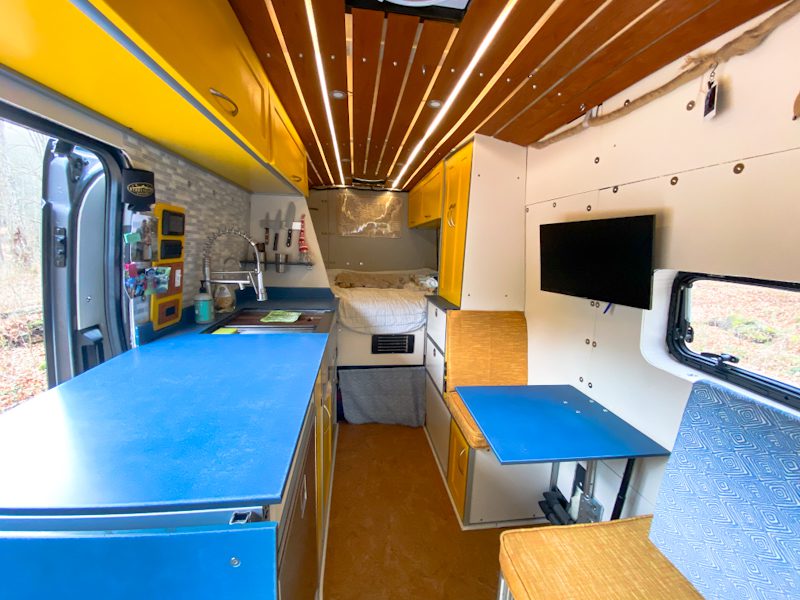
Alternating Current [AC] Appliances
So your van is fully capable of running on DC electricity alone, but adding AC appliances opens up a whole new world of creature comforts to bring comfortable household living. AC power is anything that you plug into an outlet. Here are some of our favorite van appliances on the road!
- Immersion blender
- External monitor
- Laptop chargers
If this interests you, we have and in depth guide to:
Calculate Your AC Power Usage
Our FREE Electrical Diagram
You camper van’s electrical system is likely the single largest expense of your build. You should go into the process with a solid understanding of your options and your needs so that you can make the right decision and make off grid living easy. Revisit the electrical system overview above as needed in your planning phase, and then head over to our deep dive electrical posts when you are ready for the install! If you are ever in doubt, feel free to schedule a Virtual Van Build Consulting call with us!
Additionally, we have digitized our electrical system that you can download below:
Additional Camper Van Electrical Guides
We’ve written several additional camper van electrical system guides to assist you in your camper van conversion:
If you have additional questions, don’t hesitate to schedule a 1:1 van build consultation!
Thanks for being here! Happy building!
Eric + Colby
✉️ Join our mailing list for more content!
🙏🏽 If you are looking for more 1:1 van build help, we are here to help via Consulting or Travel Van Building.
[Start Here] Beginner Guides:
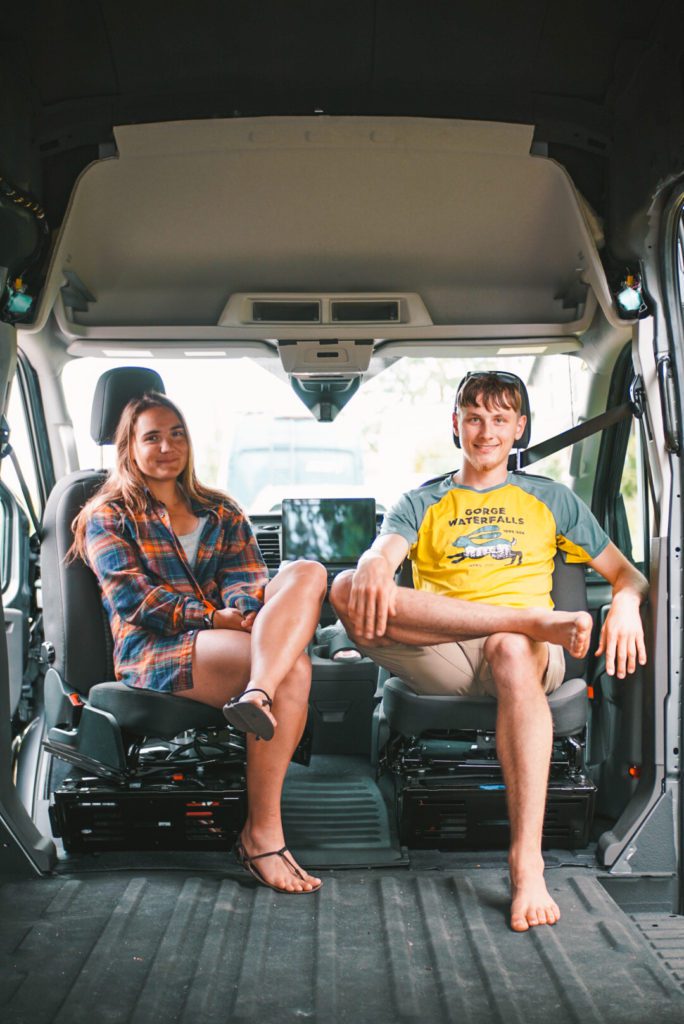



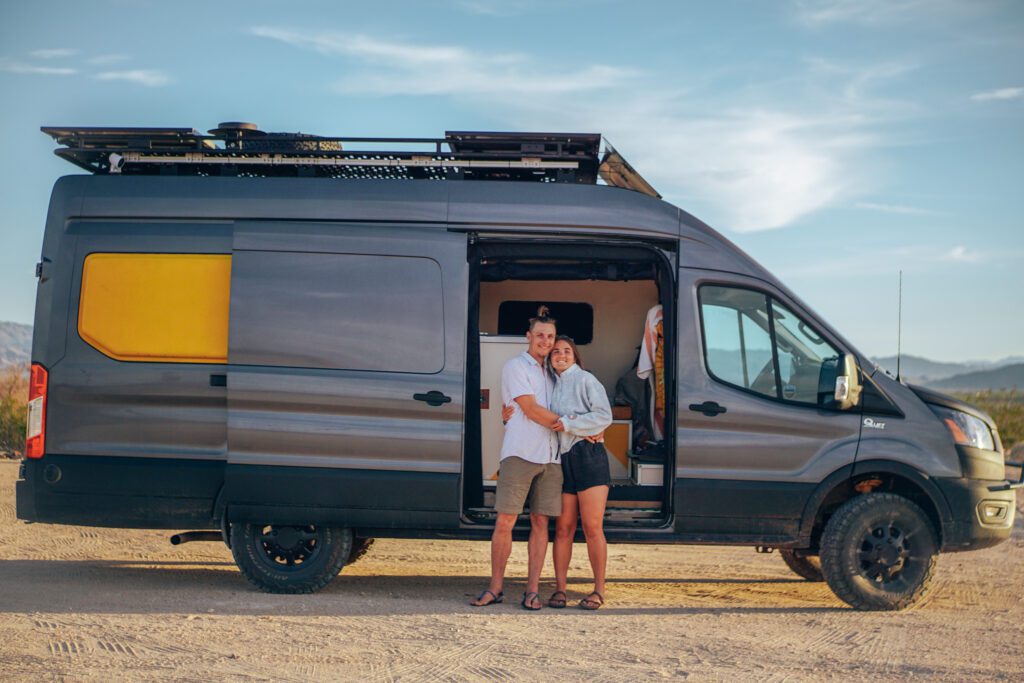

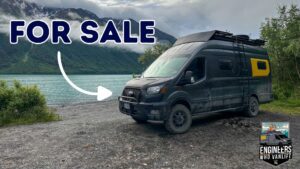
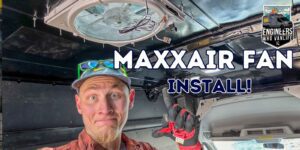
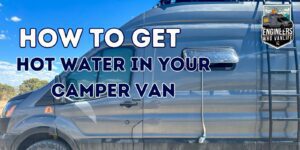
Comments 1
Thanks guys. We’ll be stepping through the deep dive tomorrow and will put together a draft plan. Then we’d like to set up an appointment to review. -Ken